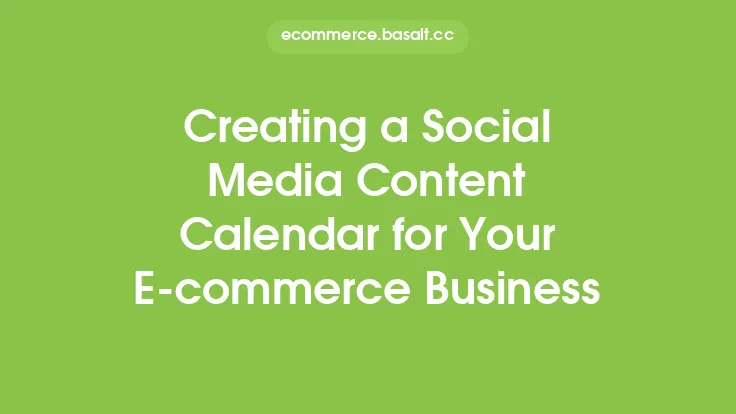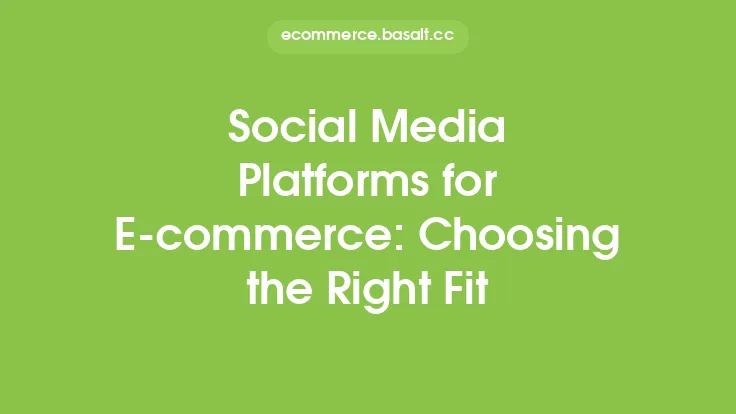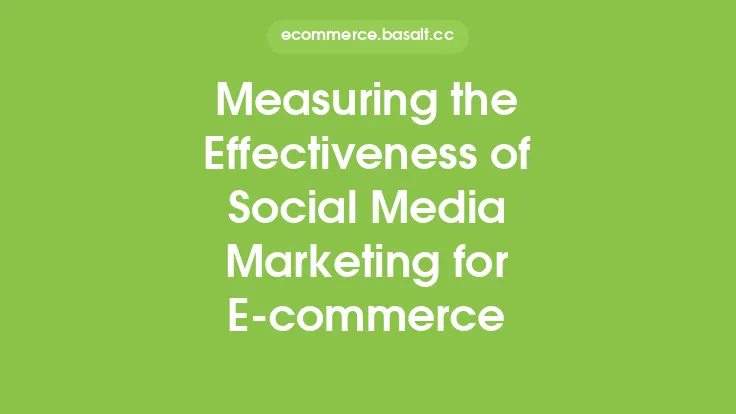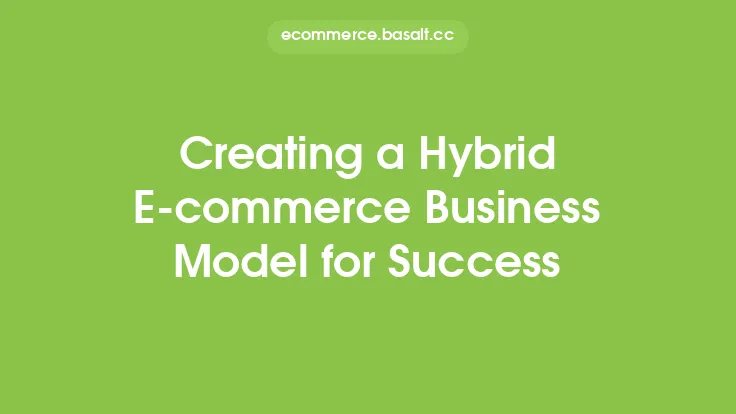In today's digital age, having a solid e-commerce social media strategy is crucial for businesses looking to establish a strong online presence, drive sales, and build a loyal customer base. Social media platforms have become an essential channel for e-commerce companies to connect with their target audience, promote their products, and stay ahead of the competition. A well-planned social media strategy can help e-commerce businesses to increase brand awareness, drive website traffic, and ultimately boost sales.
Understanding Your Target Audience
To develop a successful e-commerce social media strategy, it's essential to understand your target audience. This includes identifying their demographics, interests, preferences, and behaviors. By knowing your audience, you can create content that resonates with them, address their pain points, and provide solutions to their problems. Conducting market research, analyzing customer data, and using social media analytics tools can help you gain valuable insights into your target audience. This information can be used to create buyer personas, which are fictional representations of your ideal customers. By understanding your target audience, you can tailor your social media content, advertising, and engagement strategies to meet their needs and preferences.
Setting Social Media Goals and Objectives
Setting clear social media goals and objectives is critical to the success of your e-commerce social media strategy. Your goals should be specific, measurable, achievable, relevant, and time-bound (SMART). Examples of social media goals for e-commerce businesses include increasing website traffic, boosting sales, improving customer engagement, and enhancing brand awareness. By setting specific goals, you can focus your efforts on achieving them and measure the effectiveness of your social media strategy. It's also essential to align your social media goals with your overall business objectives, ensuring that your social media efforts support your broader business strategy.
Choosing the Right Social Media Platforms
With so many social media platforms available, it's crucial to choose the ones that best align with your e-commerce business goals and target audience. Each platform has its unique features, audience demographics, and content formats. For example, Instagram and Pinterest are visual-centric platforms, making them ideal for e-commerce businesses with high-quality product images. Facebook, on the other hand, is a more general platform with a broader audience, making it suitable for businesses looking to build brand awareness and drive website traffic. Twitter is ideal for real-time engagement, customer service, and promotions. By choosing the right social media platforms, you can maximize your reach, engagement, and conversions.
Creating Engaging Social Media Content
Creating engaging social media content is vital to capturing the attention of your target audience and driving sales. Your content should be high-quality, relevant, and consistent with your brand voice and tone. Use a mix of content formats, such as images, videos, blog posts, and stories, to keep your audience engaged. Product showcases, customer testimonials, behind-the-scenes stories, and user-generated content can help to create a sense of authenticity and build trust with your audience. It's also essential to optimize your content for each social media platform, using relevant hashtags, tags, and descriptions to increase discoverability.
Building a Strong Social Media Presence
Building a strong social media presence requires consistency, patience, and persistence. Ensure that your social media profiles are complete, up-to-date, and consistent with your brand identity. Use high-quality profile pictures, cover photos, and bios that accurately reflect your brand. Post content regularly, using a content calendar to plan and schedule your posts in advance. Engage with your audience by responding to comments, answering questions, and using social media listening to stay on top of industry conversations. Collaborate with influencers, partners, and other brands to expand your reach and build credibility.
Measuring and Optimizing Your Social Media Strategy
Measuring and optimizing your social media strategy is crucial to its success. Use social media analytics tools to track your performance, identifying areas of strength and weakness. Monitor metrics such as engagement rates, website traffic, conversions, and return on investment (ROI). Use this data to adjust your social media strategy, tweaking your content, advertising, and engagement approaches to improve your results. Conduct regular social media audits to ensure that your strategy is aligned with your business goals and target audience. By continuously measuring and optimizing your social media strategy, you can refine your approach, improve your performance, and drive long-term success.
Staying Up-to-Date with Social Media Trends and Best Practices
The social media landscape is constantly evolving, with new trends, features, and best practices emerging all the time. Staying up-to-date with the latest developments is essential to maintaining a competitive edge and maximizing your social media ROI. Follow industry leaders, attend webinars and conferences, and participate in online forums to stay informed about the latest social media trends and best practices. Experiment with new features, formats, and strategies to stay ahead of the curve and drive innovation. By staying up-to-date with social media trends and best practices, you can refine your strategy, improve your performance, and drive long-term success.





